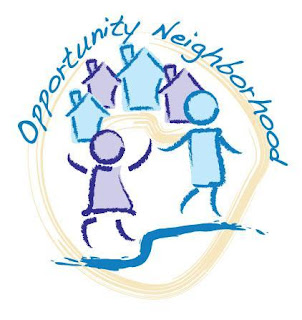Federal Reserve reports on opportunity neighborhoods.
Wealthy Black Homes Still Suffer Segregation, Fed Study Says
Jill R. Shah
(Bloomberg) -- Some wealthy Black families still live in U.S. neighborhoods with relatively low incomes and high rates of unemployment, suggesting other factors such as housing discrimination are at play, according to a Federal Reserve study.
Black households with high income and wealth still lack access to “opportunity neighborhoods,” which have good schools and an abundance of other working professionals, according to a new analysis by the Federal Reserve Bank of Cleveland. Black families live in neighborhoods with a considerably lower socioeconomic status than their White peers at each level of income distribution, the report said.
The findings suggest that simply closing the racial wealth gap for Black households will not equalize access to opportunity neighborhoods, which plays a role in economic mobility. Systematic discrimination may limit the ability of Black households to rent or buy homes in these neighborhoods, the report’s authors said.
“Our findings indicate that, at least in terms of neighborhood sorting, we should view wealth as more of a consequence than a cause,” wrote researchers Dionissi Aliprantis, Daniel Carroll and Eric Young.
The report’s findings highlight the Fed’s challenge of achieving its “broad and inclusive” maximum-employment goal. In the latest jobs report, Black unemployment was nearly double that of White Americans.
Black families with annual incomes of $175,000 tend to live in neighborhoods with similar unemployment rates as White households with incomes under $10,000, the report showed. The lowest-income White families live in neighborhoods with higher socioeconomic status than those of most Black households, according to the report.
In cities with many Black neighborhoods with high socioeconomic status, high-income Black households live in neighborhoods similar to high-income White households. However, in cities with fewer wealthy Black neighborhoods, high-income Black families tend to live where the socioeconomic status is lower than that of their White counterparts, the report found.
In choosing where to live, Black households may face a difficult tradeoff between cities with a larger share of other Black residents and greater economic opportunity. The report also suggests that discrimination in the housing market and ongoing racial hostility could explain racial distributions across neighborhoods.
“Making spaces that have traditionally been viewed as being for White people welcoming to Black people is not just about psychological safety, but also about economic opportunity,” the authors wrote.
(Updates with socioeconomic status of neighborhoods in sixth paragraph. An earlier version corrected the spelling of an author in the fourth paragraph.)
Seawolf says, I added this blurb about opportunity neighborhoods from Google.
The concept of “opportunity neighborhoods” is meant to capture the idea that life chances are better in some places than others. Together with related notions such as the “geography of opportunity,” it constitutes the reigning paradigm driving American housing policy for at least the past two decades.
Link.
https://www.msn.com/en-us/money/other/wealthy-black-homes-still-suffer-segregation-fed-study-says/ar-AAOgK2T?ocid=msedgntp


Comments
Post a Comment